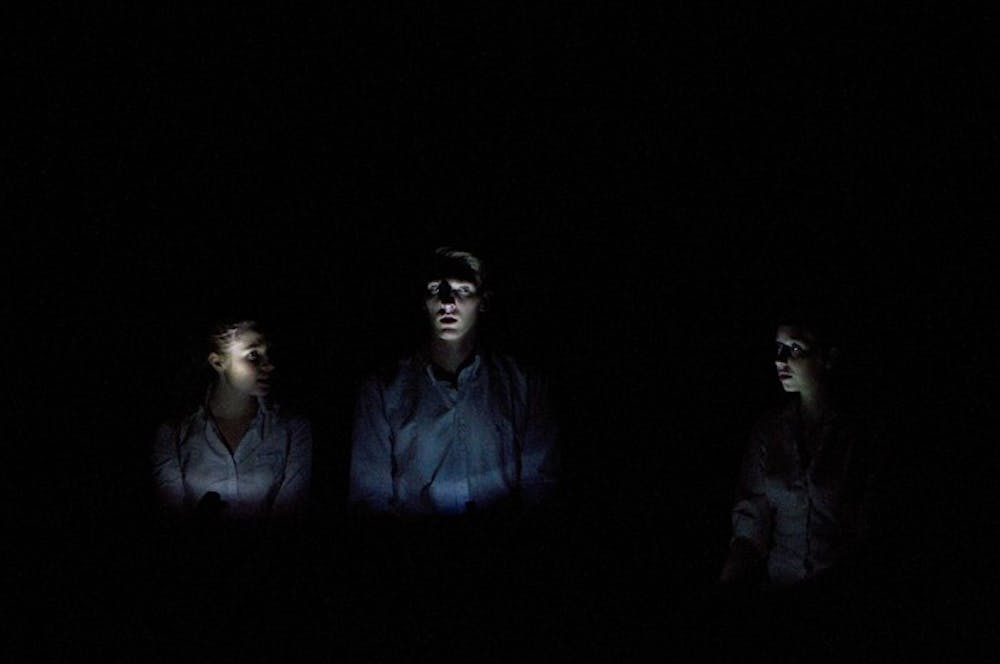The more we talk, the less we listen.
The AU Players have dissected this seemingly paradoxical statement with their production of Eugene Ionesco’s “The Bald Soprano.” This obscure comedy exposes redundancies in modern communication.
Director Jeff Gan, a junior in the School of International Service and College of Arts and Sciences, reinterpreted several key aspects of the production to distinguish this performance from previous iterations, challenging his actors to reveal new meanings buried deep within the inscrutable script.
Admitting that he is “in love with this play,” Gan said that he was inspired to direct this version after seeing the AU Players’ production of the obscure 13th-century medieval drama “The Conversion of Thais the Whore” last April.
According to Ryan Mays, a freshman in the School of Communication, “The Bald Soprano” was once described as “the tragedy of the English language” because the script demonstrates communication’s destructive ability to diminish truth.
The minimal plot follows two husband-and-wife duos, the Smiths and the Martins, during an evening of ephemeral, neighborly camaraderie gone awry. A visit from the town’s meek but lovable fire chief (Mays) catalyzes a disturbingly chaotic release of nonsensical dialogue, culminating in a striking reversal that brings the story full circle.
The show’s six characters fall into three categories of comprehension. The Smiths and Martins struggle to make sense of their meaningless interactions, while the maid chooses not to think about the implications of her discourse. As for the fire chief?
“He sees the meaningless communication, and it utterly destroys him,” Mays said.
Although the rehearsal process has ultimately been rewarding, this play presented several challenges for the actors. Alex Johnson, a freshman in CAS who plays Mrs. Smith, said “putting meaning into the lines,” many of which neglect traditional grammar and basic coherence, required intense memorization. Prior to run-throughs, the actors recited formidable tongue twisters to “maintain focus,” according to Paige Austin, a freshman in CAS.
The actors are also required to provide the show’s only source of light, pointing flashlights at themselves and others to illuminate their faces while leaving the rest of the stage in shadow. While initially disconcerting, the eerie absence of traditional lighting reflects the play’s central themes.
“The characters are always trying to define for themselves what their reality is,” Gan explained. “They can only illuminate as much as their narrow state of being allows.”
Gan also said that the actors experienced difficulty with the unconventional lighting situation.
“They’ve really taken to it now,” he said, praising the actors for their perseverance in realizing his “slightly darker read” of a play usually presented as pure farce. By fusing rapid wit with disconcerting distress, Gan hopes to provoke thought and laughter in equal measure.
Despite the unfamiliar production style, Austin experienced a comfortable, welcoming rehearsal environment.
Will humans ever transcend the crippling limitations of communication? Perhaps audiences at this weekend’s performance of “The Bald Soprano” will be one step closer to the answer.
mlieberman@theeagleonline.com





